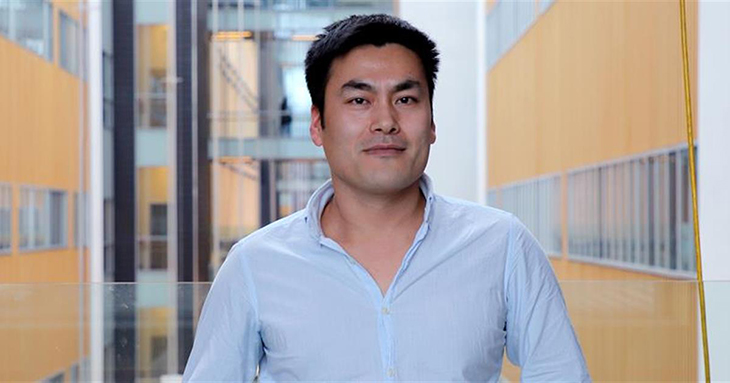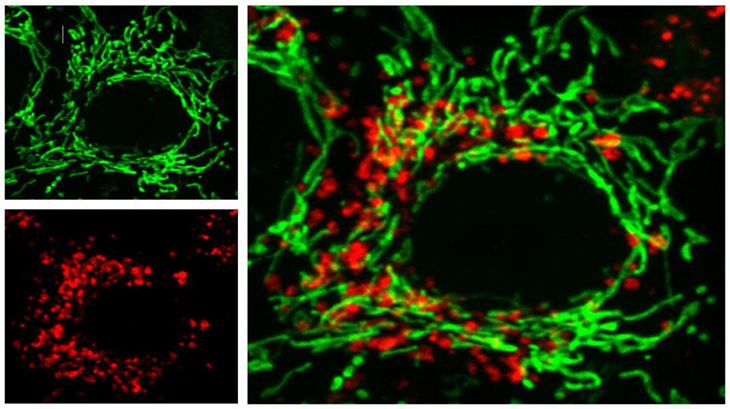
Those who suffer from Alzheimer’s have to deal with the repercussions of this debilitating disease. Their loved ones have to watch them deteriorate over time, not knowing what else to do but be there. Hence, doctors and researchers have been searching for the perfect cure.
These researchers in Oslo have developed an artificial intelligence (AI) method that’s designed to aid them in identifying possible and potential new medicines for those who suffer from the disease. From the looks of it, this newest form of medicine seems to be more accurate because zero side effects were observed when they tested it on worms and mice.
There are several major causes for Alzheimer’s, but one of which is the degeneration and loss of nerve cells in the brain as we get older. It must be noted that cells are like well-oiled machines, and these need energy to perform its tasks properly. They get this from energy factories that we call the mitochondria.
For young and healthy cells, they are able to clean the old or damaged mitochondria in a process called mitophagy. However, what the researchers discovered is that as we age, we have more broken mitochondria, and the cells that were once efficient no longer have the ability to remove all of them efficiently. Hence, the broken mitochondria accumulates and clogs the cell’s ordinary processes. This will eventually lead to cell death.
Cells depend on the energy that is generated by the mitochondria in order to properly clean out the dead mitochondrion trash. Think of your body as a car. If the tubes and pipes aren’t kept clean, then this will eventually break down. Maintenance is the secret to good health. This idea was shared by associate professor Evandro F. Fang, the leader of the research group.
The New Treatment for Alzheimer’s Disease
There’s potentially a new procedure that helps treat the disease. This method is described by Fang’s group in a new study. “We may be able to reduce or stop the progress of the disease with the patient. We can do this by increasing the cell’s ability to self-clean,” Fang said.
Part of the issue is when the machine gets clogged. Hence, the researcher team had to find a way to enhance the body’s cleaning process. The studied the use of the so-called mitophagy inducers for this. The main idea for their project was to look for the perfect way to enhance the level of waste management in the brain cells of the patient.
“We can compare this to hiring extra personnel to clear a cleaning backlog in a factory,” Fang said. Back in 2019, Fang and his team described how there could possibly be a way to stimulate the cells’ own self-cleansing system. Hence, they had searched for the perfect method, which may be through AI.
Improving Other Organs Along the Way

When the mitophagy is given a reboot, this allows for several advantages to take place. First of all, the process will increase the clearance of brain cell garbage. As a result, the cleaning process will be more efficient as well. This may also enhance the cleaning in the other organs. Hence, the brain may not be the only recipient. Fang explained, “By turning up mitophagy, we may also be able to increase the quality of other organs, like their heart and muscles. A stronger body is important to reduce the effects of the disease.”
New Technology May be Able to Find Possible Candidates for New Medication
To develop a new drug is not easy. It takes a lot of time, patience, and effort to come up with one. It’s also extremely expensive. The researchers wanted to search for substances that help induce the brain’s cleaning process. To do this, they got the help of an AI to search for what is known as mitophagy inducers.
The computer program that was created was designed to browse through a large catalog of substances. The AI had identified two candidates: Rhapontigenin and Kaempferol. To do this, they used mice and nematodes, a type of worms, to document and take note because they wanted to see if the use of these substances on the nerve cells inhibited memory loss.
Right now, Fang and his team have already filed a patent on Rhapontigenin for the treatment of Alzheimer’s disease. They’re also working hard on describing both how Rhapontigenin and Kaempferol can help delay the progression of memory loss and how this may also help us reduce the progression once the disease takes place in the body. They are also going to describe the in-depth molecular mechanisms that assist Kaempferol and Rhapontigenin when inducing mitophagy.
Much work has yet to be done because the AI hasn’t been tested on people yet. “We are now using AI to propose small, structural modifications to these candidate compounds. We want to make them safer and more efficient for treating Alzheimer’s disease,” Fang said.
The details of the study have been published in Nature Biomedical Engineering.



